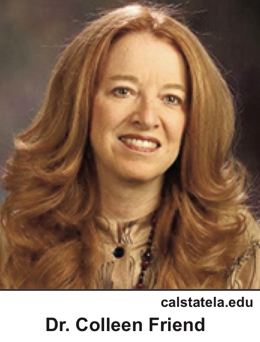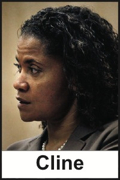Rascals case in brief
In the beginning, in 1989, more than 90 children at the Little Rascals Day Care Center in Edenton, North Carolina, accused a total of 20 adults with 429 instances of sexual abuse over a three-year period. It may have all begun with one parent’s complaint about punishment given her child.
Among the alleged perpetrators: the sheriff and mayor. But prosecutors would charge only Robin Byrum, Darlene Harris, Elizabeth “Betsy” Kelly, Robert “Bob” Kelly, Willard Scott Privott, Shelley Stone and Dawn Wilson – the Edenton 7.
Along with sodomy and beatings, allegations included a baby killed with a handgun, a child being hung upside down from a tree and being set on fire and countless other fantastic incidents involving spaceships, hot air balloons, pirate ships and trained sharks.
By the time prosecutors dropped the last charges in 1997, Little Rascals had become North Carolina’s longest and most costly criminal trial. Prosecutors kept defendants jailed in hopes at least one would turn against their supposed co-conspirators. Remarkably, none did. Another shameful record: Five defendants had to wait longer to face their accusers in court than anyone else in North Carolina history.
Between 1991 and 1997, Ofra Bikel produced three extraordinary episodes on the Little Rascals case for the PBS series “Frontline.” Although “Innocence Lost” did not deter prosecutors, it exposed their tactics and fostered nationwide skepticism and dismay.
With each passing year, the absurdity of the Little Rascals charges has become more obvious. But no admission of error has ever come from prosecutors, police, interviewers or parents. This site is devoted to the issues raised by this case.
On Facebook
Click for earlier Facebook posts archived on this site
Click to go to
Today’s random selection from the Little Rascals Day Care archives….
Click for earlier Facebook posts archived on this site
Click to go to
Today’s random selection from the Little Rascals Day Care archives….
Catholic clergy abuse scandal unrelated to day-care cases
 Nov. 18, 2015
Nov. 18, 2015
“Readers who want a deeper look at how young children’s accounts of CSA (child sexual abuse) were discredited in the same time frame of the (Roman Catholic) clergy CSA scandal should read Ross Cheit’s 2014 book ‘Witch-Hunt Narrative: Politics, Psychology and the Sexual Abuse of Children’….
– From “ ‘Spotlight’ Gets A Lot Right” by Colleen Friend in the Chronicle of Social Change (Nov. 15)
Whoa.
The clergy sex abuse scandal at the center of the just-released newsroom drama “Spotlight” had nothing to do with the “satanic ritual abuse” moral panic so earnestly if unpersuasively denied by Professor Cheit.
Clergy abuse was all too real, and the evidence proved undeniable; abuse in day cares was a fantasy produced by undertrained and overreaching therapists. Tragically, the children’s accounts that were “discredited” were their original denials that they had experienced abuse.
Worth noting: Dr. Friend is former director of Stuart House in Santa Monica, Calif., a child abuse treatment center opened to accommodate the tidal wave of (mostly imaginary) abuse cases spawned by McMartin.
Chandler’s hopes rest with innocence project
May 6, 2013
When last we left Junior Chandler, his former appellate defender, Mark Montgomery, had asked North Carolina Prisoner Legal Services to look into the case.
But NCPLS requires the prisoner himself to request help, and that hasn’t happened. “Like a lot of the old-timers, Junior does not think they (NCPLS) are worth much,” Montgomery says. “There was a big shake up there a few years ago, and they are now very aggressive and as effective as anybody in post-conviction cases. I am going to encourage Junior (again) to ask for their help….”
Meanwhile, he has pitched Junior’s case to Christine Mumma at the N.C. Center on Actual Innocence.
Here’s the essential “evidence of actual innocence” that Montgomery offered Mumma:
“Lathern Hensley (a.k.a. Buddy Norton) was one of the adult mentally retarded riders on Junior’s bus. He and another woman testified that Junior did stuff, and they helped. They each got probation-only plea deals. I found Hensley, but his guardian wouldn’t let me talk with him. The Actual Innocence folks (with powers granted by the state) could insist on talking with Hensley. I think he would say that he was pressured into lying on the stand.”
This is just the latest long shot in overturning Junior’s wrongful conviction, and even if the Center on Actual Innocence agrees to take the case, the process is anything but swift. As the Center’s website cautions, “We counsel patience to inmates and their families during the investigative phase as the process of gathering additional documentation; identifying, locating and interviewing witnesses; and completing many other investigative tasks can take several years.”
Tracey Cline, Mike Nifong and H.P. Williams
 March 21, 2012
March 21, 2012
“In July 1993, (Tracey Cline) headed to the state’s northeast corner to work as a prosecutor in a cluster of counties near Elizabeth City. Her stint there was short-lived, just six months, and unremarkable, according to supervisors….
“ ‘I hated to see her leave….’ (former District Attorney H. P.) Williams said. ‘I would have given her a good recommendation.’ ’’
– From the News & Observer of Raleigh, February 19, 2012
Williams may have nothing to say on behalf of the innocent Little Rascals defendants, but he seems ever eager to speak well of Cline and Durham’s other epically unethical DA.
Disapproval of prosecutors ‘about to hit a tipping point’

facebook.com
Juleyka Lantigua-Williams
May 31, 2016
“A consensus is building around the need to seriously rethink the role of the prosecutor in the administration of justice. Power dynamics are unbalanced, sentencing guidelines are outdated, and old-fashioned human biases persist. And prosecutors – singularly independent agents in a justice system roiling in turmoil – have been facing growing criticism and public distrust for some time, and that disapproval is about to hit a tipping point.
“It’s time to curtail the power long held by these officers of the court as they promote justice, ensure fairness, and enhance public safety.”
– From “Are Prosecutors the Key to Justice Reform?” by Juleyka Lantigua-Williams in the Atlantic (May 18)
Is the North Carolina Bar ready to take the first step toward holding prosecutors accountable?
![]()











0 CommentsComment on Facebook